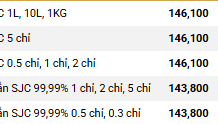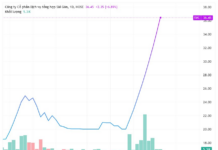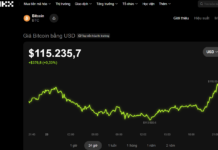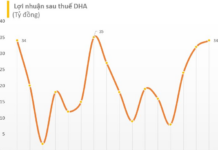Extra Charges Dilemma
The Vietnam Freight Forwarders Association – representing import-export enterprises – recently proposed to the ministries and departments about the simultaneous increase of Terminal Handling Charges (THC) by foreign shipping lines at ports starting from February. This has put businesses in a situation of “stacked fees” as shipping freight prices continuously rise due to the turmoil in the Red Sea.
Mr. Phan Thong – General Secretary of the Vietnam Freight Forwarders Association – said that for many years, foreign shipping lines have been arbitrarily imposing dozens of different fees and surcharges on Vietnamese export goods. These price increases are not based on any regulations from the management agency and are much higher than the loading and unloading fees that shipping lines pay to Vietnamese seaports.
This adjustment comes after Circular 39 – a decision to change the prices of services such as crane usage, bridge usage, and container loading and unloading – was issued by the Ministry of Transport at the end of 2023, effective from February 15.
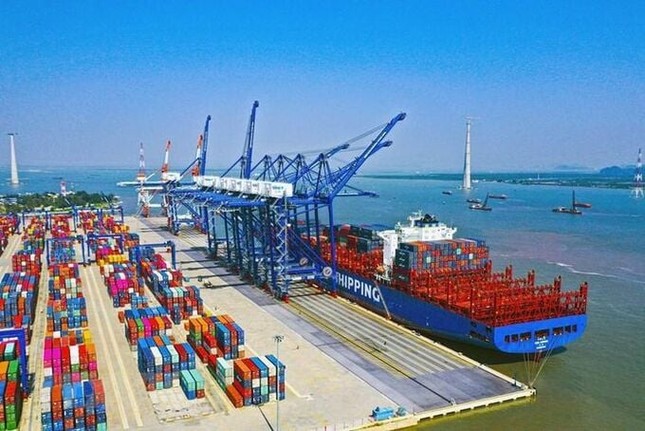
Businesses have reflected that foreign shipping lines have been arbitrarily increasing various surcharges.
Accordingly, the THC fee charged by shipping lines has increased by 10-20%, from $180-190 to $200-210 for a standard 40-foot container. The new price for a 40-foot refrigerated container is $255-265. This level is three times higher than the adjusted prices for loading and unloading containers at Vietnamese seaports.
The Vietnam Freight Forwarders Association believes that this fee increase only applies to Vietnam, while other countries in the region have not made any adjustments. In terms of absolute value, the 10-20% increase in the THC fee by shipping lines is more than three times the adjustment in the loading and unloading prices at Vietnamese seaports.
“Foreign shipping lines change prices 15 days before the adjustment and without going through an inspection or providing explanations for the components of the fees and surcharges, which makes businesses unhappy,” said Mr. Thong.
In addition to the THC fee, the Vietnam Association of Shipping Agents, Brokers and Maritime Services (VISABA) reported that shipping lines are also charging 10 other surcharges, such as document fees, fuel surcharges, container cleaning fees, sulfur emission reduction fees, and container balancing fees. The additional fees range from $9-100 per type for cargo at ports.
Mr. Pham Quoc Long – Chairman of VISABA – said that Vietnamese shippers are not the ones negotiating and signing transport contracts, so in order to obtain goods, they have to accept the terms of surcharges imposed by shipping lines. Arbitrary fee increases by shipping lines affect the rights of businesses, increase logistics costs, and reduce the competitiveness of Vietnamese goods compared to those of other countries.
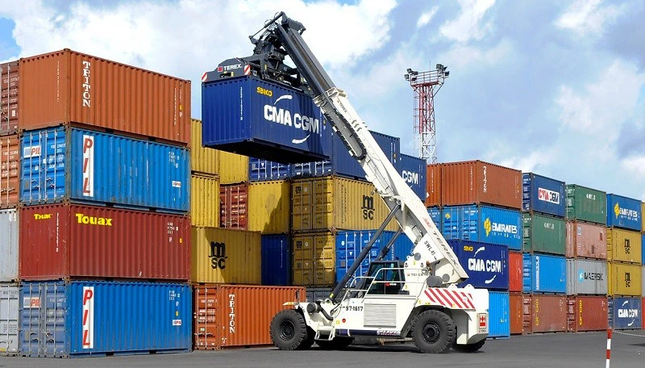
The Ministry of Transport proposes that the Ministry of Finance include sea freight surcharges in the list of mandatory requirements.
Declaration of Additional Surcharge Structure
Mr. Le Do Muoi – Director of the Vietnam Marine Administration – said that while waiting for legal regulations to manage surcharges imposed by shipping lines, the Vietnam Marine Administration is coordinating with port authorities and relevant units to facilitate enterprises in expediting procedures for entering and leaving ports, and loading and unloading goods for import-export vessels.
Regarding this matter, Ms. Nguyen Thi Thuong – Deputy Head of the Transport and Maritime Service Department, Vietnam Marine Administration – said that her department has worked with the Ministry of Industry and Trade to address the issue of steadily increasing shipping freight rates. The Vietnam Marine Administration has instructed port authorities to inspect and review various surcharges and shipping rates charged by shipping lines, and requested shipping lines to explain the reasons for their high surcharges.
“They have given a lot of reasons to justify the fee increases. However, the problem at present is that Vietnam does not have a mechanism to manage surcharges. The Ministry of Transport has proposed to the Ministry of Finance to include surcharges in the list of mandatory requirements. Then, shipping lines will have to provide evidence and report to Vietnamese authorities if they want to increase fees. The Ministry of Finance has accepted and included it in the draft Decree guiding the implementation of the Law on Pricing, which will take effect on July 1, 2024,” said Ms. Thuong.
According to Ms. Thuong, the conflict in the Red Sea is causing a sharp increase in sea freight rates worldwide. Shipping fees from Vietnam to Europe have doubled. “The specifics are that 90% of Vietnam’s import-export goods are paid for by foreign partners. However, this still affects the prices of goods and product costs. The administration is proposing to include foreign shipping lines’ routes in the reporting system for monitoring and supervision,” said Ms. Thuong.









